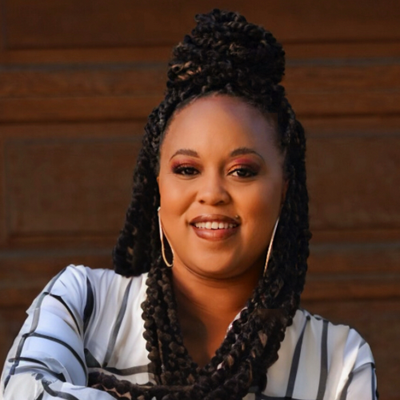In the television series “Scandal,” Olivia Pope’s father, Rowan Pope, delivers a mantra that resonates deeply for many Black individuals: “You have to be twice as good as them to get half of what they have.” This mantra, familiar across generations, reflects the realities of navigating a world of systemic inequities. It highlights the need to “stay ready,” to anticipate and navigate racism, discrimination, and microaggressions, a weight many of us carry daily. Passed down through generations, this mentality often served as a survival strategy, rooted in a history where vigilance was necessary for safety. It creates a weight that impacts mental, emotional and physical well-being.
You may have experienced it: an uninvited hand reaches toward you to touch your hair. Perhaps your voice is heard but not acknowledged in a meeting or classroom, or you censor your tone in certain spaces to avoid being perceived as “angry” or “aggressive.” The list goes on. These moments, no matter how subtle, often place Black individuals in a constant state of “staying ready,” anticipating what might happen next. This hypervigilance isn’t limited to school, social, or professional spaces. The constant need to stay ready extends beyond these daily encounters. It shows up when we are preparing to visit the doctor and advocate for our needs, encountering racism while simply walking down the street, or experiencing the violence inflicted on Black bodies at the hands of the police. The preparation that must be undertaken keeps us in a heightened state of alert, a state that mental health experts call hypervigilance.
As Dr. Derald Wing Sue explains, “Microaggressions can affect mental, emotional, and physical health. The impact is immediate and long term. It can lead to anxiety, emotional exhaustion, and physical manifestations like sleep disturbances or burnout.”
For Black individuals, the constant anticipation of these encounters, whether subtle or overt, leads to heightened anxiety, depression, and emotional exhaustion. Physically, this stress can manifest as burnout, disrupted sleep, or even chronic health conditions.
Dr. Gail Parker emphasizes, “The body holds onto the memory of these experiences, even when the mind moves on.”
Without rest, care or intentional healing, stress and trauma create a cycle that further strains well-being.
To navigate these realities, we must take an intentional approach to care, one that reframes rest as an act of resistance and self-preservation.
As Audre Lorde, Black feminist writer and activist, stated, “Caring for myself is not self-indulgence, it is self-preservation, and that is an act of political warfare.”
Rest is our right and prioritizing it allows focus on what fills you up and being mindful of what drains you. Rest looks different for everyone. For some, it might mean physically releasing tension by dancing to music that uplifts the spirit or shaking the body to release stress. Others may find comfort in things like art, journaling or meditation.
Collective care, too, plays a critical role. It might mean seeking and building community, finding comfort in others’ stories, shared meals, or cultural gatherings that can foster connection, and celebrate Black joy.
Through intentional care, community support and the nurturing of joy, we can disrupt the cycles of stress and begin to heal.
